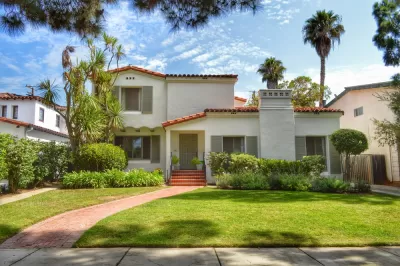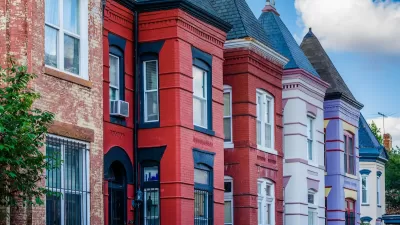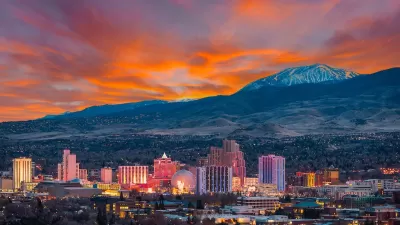As the pandemic shifts housing priorities and costs continue to soar, experts assess the potential for a crash similar to 2008's Great Recession.

With home prices and rents rising across the country, Jerusalem Demsas, writing for Vox, attempts to answer the question, "are we in a housing bubble?"
"[T]here’s no agreed-upon economic definition for an asset bubble," writes Demsas. "And in everyday conversation, it appears to mean 'prices have gone up a lot and I think they’re going to come crashing down again.'" Regardless of the label, Demsas argues that home prices depend "on public policy choices that are in our control."
According to research by Harvard economist Robin Greenwood and his fellow researchers, "just because prices rise really fast doesn’t mean it’s a bubble in danger of popping. The definition needs to be narrower than that." A "frenzied ethos" is also a key component. "In general, what people are looking for to determine if there might be a bubble in housing is that the fast price appreciation is detached in at least some ways from the fundamental reasons why prices increase or decrease normally (like supply or demand)."
Regardless of the bubble status of today's housing market, homeowners and buyers, overall, face less risk than before the 2008 crash. "This isn’t a situation where a ton of people have mortgages that they won’t be able to pay off — the marginal homebuyer is wealthier and more secure than in the lead-up to the Great Recession." But "[p]rices are rising, homeownership is increasingly out of the reach of many Americans, and the alternative (renting) is also increasingly expensive, especially in the most job-rich parts of the country. This is an unhealthy, unstable, and unacceptable state of affairs." Demsas blames restrictive zoning laws for "turning an asset that could be widely available into a scarce one" and suggests that local governments should encourage increased density and more housing production to help supply meet rising demand.
FULL STORY: Is there a housing bubble?

Maui's Vacation Rental Debate Turns Ugly
Verbal attacks, misinformation campaigns and fistfights plague a high-stakes debate to convert thousands of vacation rentals into long-term housing.

Planetizen Federal Action Tracker
A weekly monitor of how Trump’s orders and actions are impacting planners and planning in America.

San Francisco Suspends Traffic Calming Amidst Record Deaths
Citing “a challenging fiscal landscape,” the city will cease the program on the heels of 42 traffic deaths, including 24 pedestrians.

Adaptive Reuse Will Create Housing in a Suburban Texas Strip Mall
A developer is reimagining a strip mall property as a mixed-use complex with housing and retail.

Study: Anti-Homelessness Laws Don’t Work
Research shows that punitive measures that criminalized unhoused people don’t help reduce homelessness.

In U.S., Urban Gondolas Face Uphill Battle
Cities in Latin America and Europe have embraced aerial transitways — AKA gondolas — as sustainable, convenient urban transport, especially in tricky geographies. American cities have yet to catch up.
Urban Design for Planners 1: Software Tools
This six-course series explores essential urban design concepts using open source software and equips planners with the tools they need to participate fully in the urban design process.
Planning for Universal Design
Learn the tools for implementing Universal Design in planning regulations.
Heyer Gruel & Associates PA
JM Goldson LLC
Custer County Colorado
City of Camden Redevelopment Agency
City of Astoria
Transportation Research & Education Center (TREC) at Portland State University
Jefferson Parish Government
Camden Redevelopment Agency
City of Claremont





























